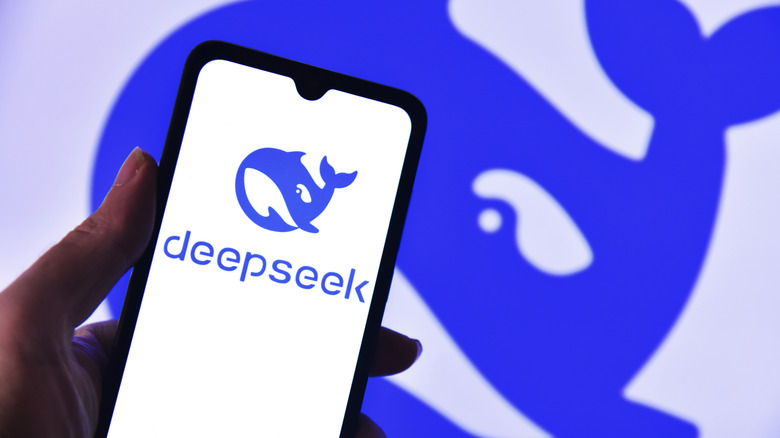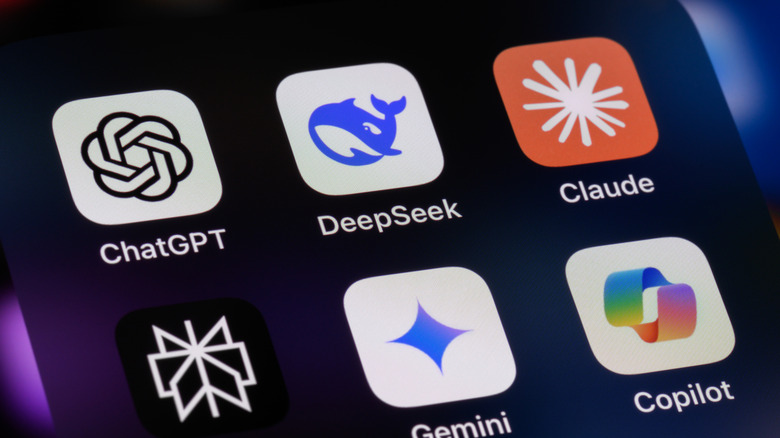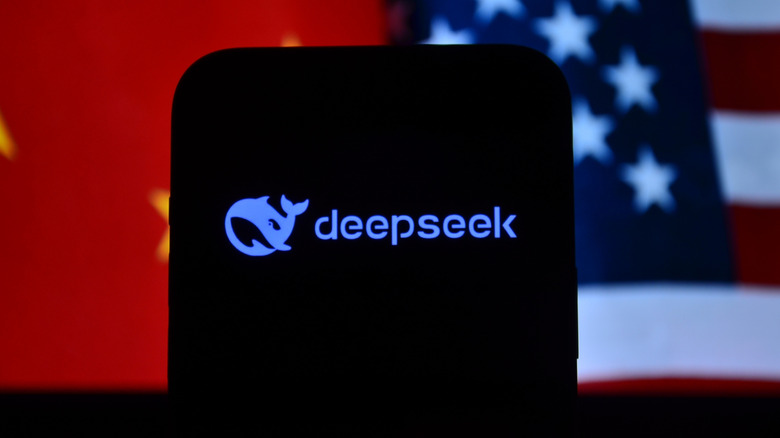DeepSeek AI Is Drastically Affecting The AI Industry - Here's How
The market cap of Nvidia is hovering over four trillion dollars, and a large chunk of it has to do with the fact that the company has a near-monopoly over the supply of GPUs, which are vital for AI training and processing. Yet, earlier this year, the company witnessed a record-breaking stock route surpassing half a trillion dollars. The market was spooked, and investors dumped AI stocks following the launch of an updated AI assistant by China's DeepSeek, an enigmatic company that first made waves with the arrival of its eponymous AI chatbot to challenge US-based AI giants such as OpenAI, Google, and Anthropic.
Such is the frenzy, even among average users, that the app eclipsed ChatGPT and reached the summit of Apple's App Store in the US market. The demand was so high that the company temporarily had to restrict new users from onboarding. But the real money maker for AI upstarts such as DeepSeek, or even established names such as OpenAI, is the adoption by enterprises. And that's where DeepSeek has a fundamental leg-up, and a few crucial operational benefits that can
First, it's an open-source model, which means it is freely available for companies to modify and deploy to their specific needs. Second, the cost of deploying it, which is usually measured in terms of "AI tokens," is also dramatically lower than what companies would pay for rival AI products such as Gemini or ChatGPT. Additionally, it requires lower system resources to run, thanks to its unique architecture that activates far fewer parameters to perform a task. It's also faster and more affordable to train, both of which are crucial requirements for large-scale adoption.
The impact, in numbers
In the AI segment, the biggest concern right now is the massive compute cost and how companies can price their tools in a way that they can make a profit while customers don't feel an excessive pinch either. Citing the example of an automobile insurance company named Roadzen, CNBC highlights that the cost incurred for using OpenAI's ChaGPT stack stands at roughly $36,455 for processing half a million insurance claims in a quarter. But if the same was deployed to the DeepSeek-R1 model, the costs would come down to $17,012, nearly half compared to OpenAI tools.
A Sweden-listed company named Oodash also outlined plans to use DeepSeek and cut the cost incurred by its clients in the long run. Analysis by ORAI Robotics also puts DeepSeek in the lead, far ahead of Google's Gemini and OpenAI's GPT models. Citing the example of customer support chats, the per-conversation cost of DeepSeek(V3 model) is roughly 178 times cheaper than ChatGPT (o1 model). In a nutshell, for businesses that deal with high-volume customer chats and startups, DeepSeek is the more economical choice. Take a look at the comparative output costs of the top AI models:
Cost is a massive consideration, and the key force behind adoption. Even the biggest cloud and edge service providers have taken notice. Nvidia praised DeepSeek-R1 soon after its launch and integrated it with the Nvidia NIM platform a day after Microsoft started offering it via GitHub and the Azure Foundry. "DeepSeek's focus on cost efficiency is tapping into an industry-wide concern," says IDC Global. IBM's analysis of DeepSeek-V3 is "arguably the most capable open source LLM," adding that it's significantly faster and cheaper than other leading AI models.
Redrawing the lines of competition
For industries and businesses that are aiming to automate their work at any scale, DeepSeek offers the most optimal route to development and growth. Whether it's app developers, auditing companies, real-time data analytics, or education, DeepSeek levels the deployment field by bringing down the cost barriers. The World Economic Forum also notes that DeepSeek has shaken up the AI industry. Another reason behind its popularity in the AI sector is that the model has been trained to run on older (and cheaper) Nvidia chips, allowing it to extract more performance from less powerful hardware.
Additionally, the training process was also notably frugal on human fine-tuning, which further brings down the costs. The combined impact of higher energy efficiency, higher cost savings, and an open-source design offered by DeepSeek is being seen as "a significant step forward in democratising AI" and "a wake-up call" for AI stakeholders and stakeholders who talked to Reuters. Of course, it has triggered a price war, too. OpenAI has offered its GPT-5 model for free to users and even integrated it within Apple Intelligence for the iOS 26 software, while Microsoft offered OpenAI's reasoning model for free to Copilot AI users. Even Apple, which has failed to find a local AI partner in China, is scrambling.
"Without a local AI model partner, it's gonna be even more difficult for Apple to grow its share meaningfully," explained a CNBC analyst. In the US, there are regulatory concerns about a China-linked AI, and some security concerns have raised their head, as well. But for European companies (and elsewhere, too), DeepSeek gives smaller companies a chance to compete with Big Tech across the board.


